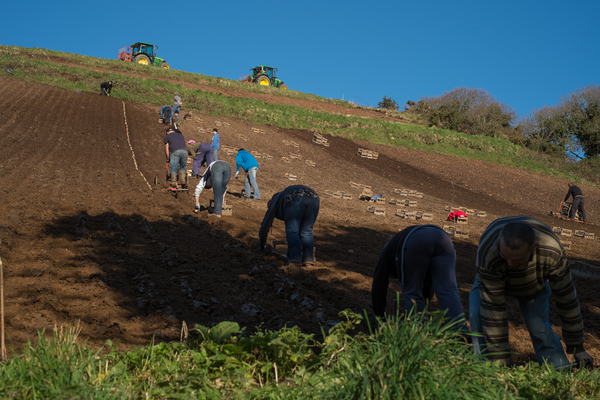
Specialist sewage processing facilities to treat nitrates in Jersey’s water, which are currently at the highest levels in Europe, could cost upwards of £30 million and should be seen as a “last resort”, an Environment Scrutiny Panel report has found.
The findings come as the result of a three-month review by Deputy David Johnson, Deputy Tracey Vallois and Connétable Sadie Le Sueur Rennard, which also revealed that household bills could go up by as much as £10-20 if Jersey Water are forced to spend £3 million on additional nitrate removal.
But neither measure is likely to completely fix the heightened nitrate levels in Jersey’s water supply, which has led to five dispensations granted by the Environment Minister to allow the concentration of nitrate in Island water to exceed the regulatory 50mg/litre limit and a build-up of sea lettuce in St Aubin’s Bay said to be harmful to tourism and the Island's water-based recreation industry - valued at up to £4.4 million.
In addition to the considerable costs, Jersey Water would struggle to dispose of the nitrate once removed from the water, leading to a waste stream with concentrations up to 64 times the limit, while neither treatment at Jersey Water or the Sewage Treatment Works would improve the quality of stream or private water supplies.
Pictured: The build-up of sea lettuce on St Aubin's Bay resulting from water pollution is a put-off for tourists, the report found.
Instead, the Panel have suggested an increased focus on tightening agricultural procedures, after a practice known as ‘double-cropping’ – the rotation of crops by season, which sometimes leads to farmers adding an “insurance dressing” of nitrogen to ensure they get good yields – was found to be a “significant contributor” to water pollution.
The agriculture sector is already making moves to clean up their fertiliser usage, with potato farmers piloting equipment which could cut down quantities by up to 15%.
Making farmers’ public funding contingent on them gaining LEAF environmental accreditation, which reviews fertiliser and pesticide usage, was also identified as an important financial incentive, as well as a potential tax on the substances.
If imposed, such a tax could fund the creation of a compliance officer role – a post recommended by the Panel to help stay on track in meeting the demands of the five-year Water Management Plan (WMP).

Pictured: Farmers could face a new fertiliser and pesticide tax to fund a new compliance officer role, if the Panel's recommendations are adopted.
So far, the Panel say that the Department of the Environment – under whose watch nitrates have now been under the dispensation limit since 2013 – should be applauded for their efforts to achieve WMP objectives, but will need backing from the Council of Ministers to ensure they “maintain momentum… to achieve the target goals”.
“The Environment Minister and his Department are to be commended for the work undertaken in producing the WMP and the ambitious targets contained within for addressing the issue of nitrate levels. The nitrate problem in Jersey is significant but, with the necessary resources in place and continued support from all key stakeholders, the Panel is confident that the Plan’s measures will have a positive impact on the quality of Jersey’s water,” the report concluded.
Environment Minister Deputy Steve Luce is yet to respond to the report.
Comments
Comments on this story express the views of the commentator only, not Bailiwick Publishing. We are unable to guarantee the accuracy of any of those comments.